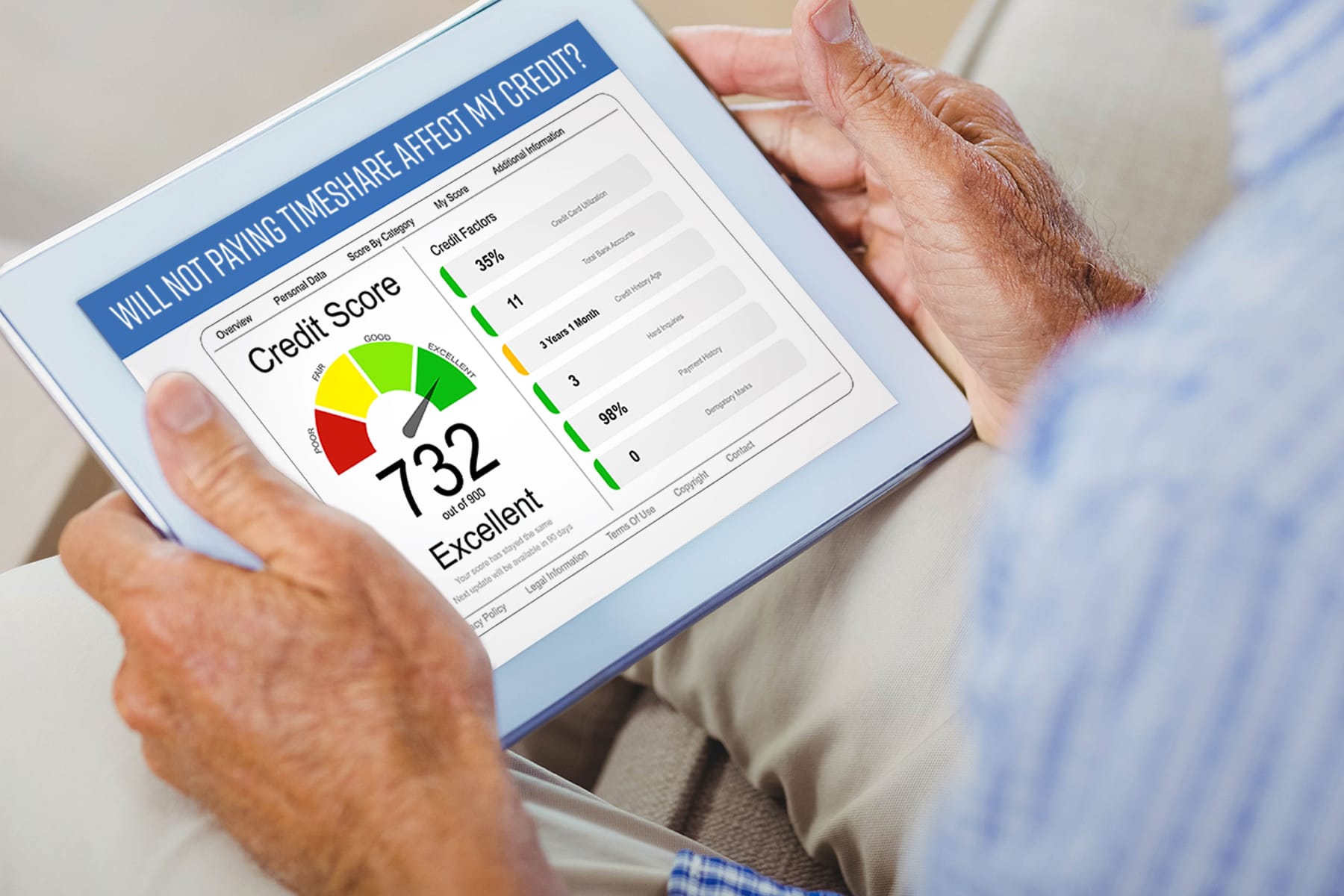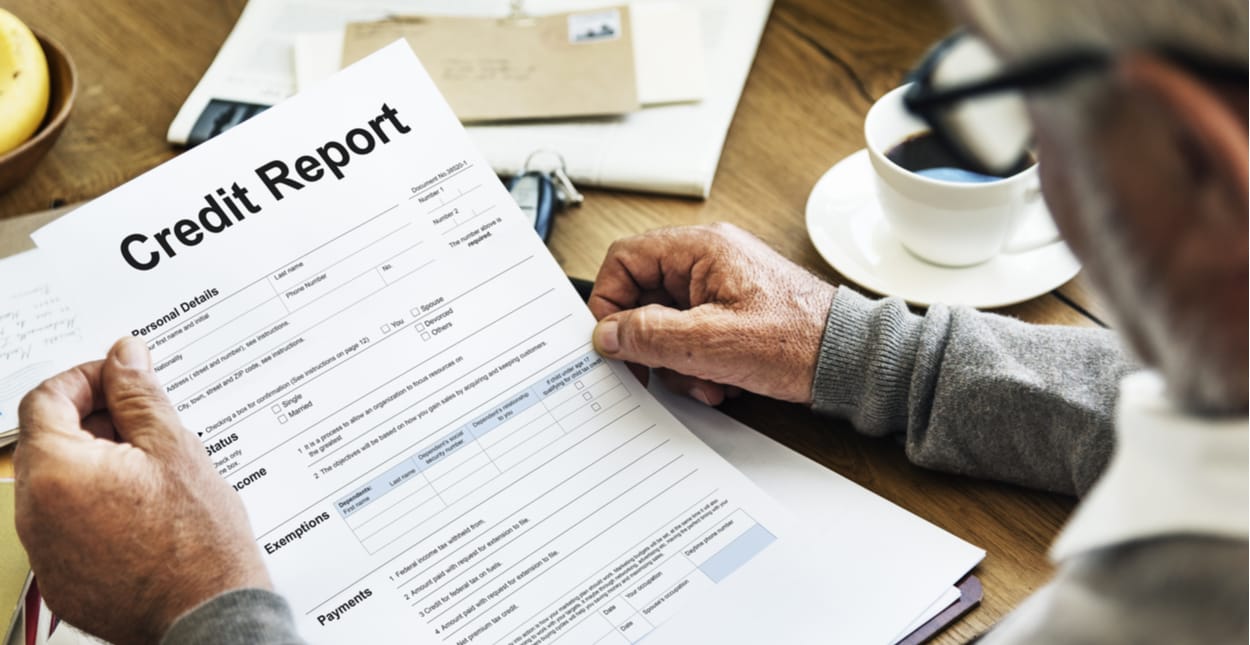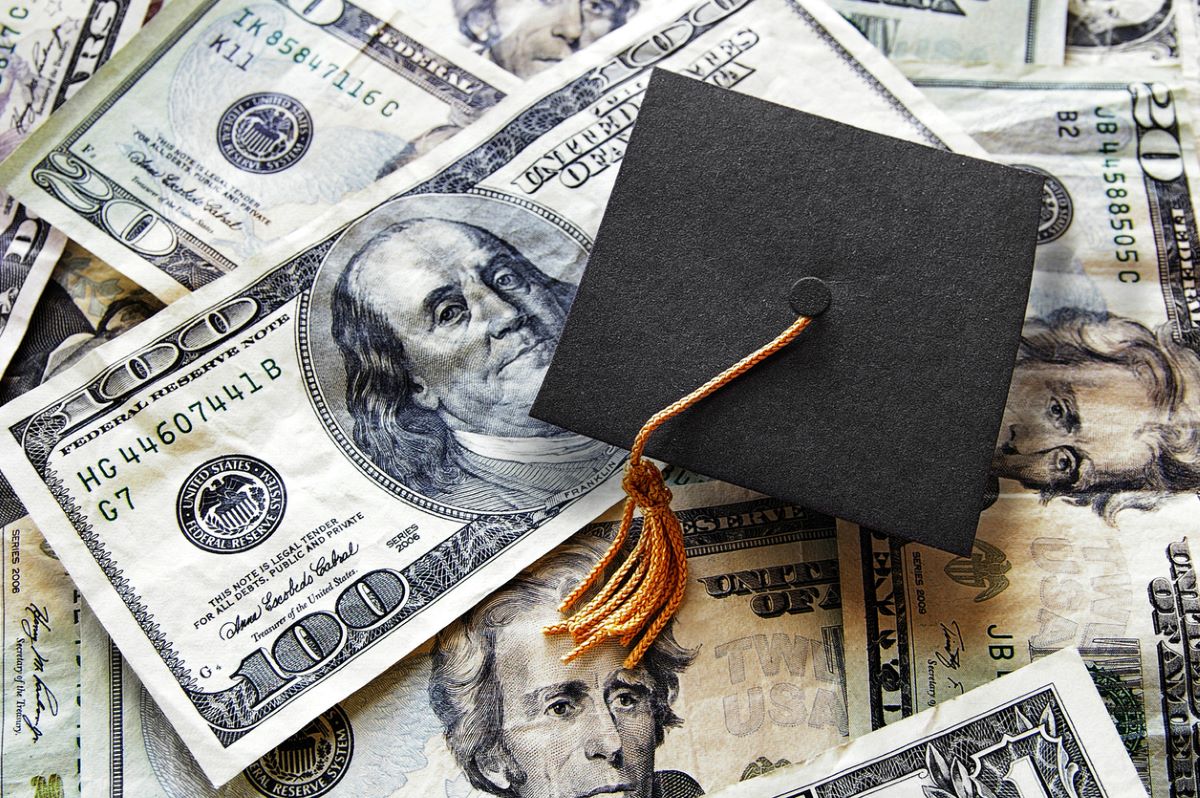Home>Finance>How To Remove Missed Student Loan Payments From Credit Report


Finance
How To Remove Missed Student Loan Payments From Credit Report
Published: November 3, 2023
Learn how to improve your credit score by removing missed student loan payments from your credit report. Get expert advice and take control of your finances.
(Many of the links in this article redirect to a specific reviewed product. Your purchase of these products through affiliate links helps to generate commission for LiveWell, at no extra cost. Learn more)
Table of Contents
- Introduction
- Understanding the Impact of Missed Student Loan Payments on Credit Report
- Gathering Information About Your Missed Payments
- Reviewing Your Credit Report for Accuracy
- Disputing Inaccurate Missed Student Loan Payments
- Negotiating with Your Loan Servicer or Lender
- Rehabilitation Programs for Defaulted Student Loans
- Consolidation or Refinancing Options
- Seeking Professional Help to Remove Missed Student Loan Payments
- Tips for Preventing Future Missed Payments
- Conclusion
Introduction
Student loans play a significant role in financing higher education for millions of individuals. However, if you have missed payments on your student loans, it can have a detrimental impact on your credit report. This can hinder your ability to secure future loans, credit cards, and even impact job opportunities.
Understanding the implications of missed student loan payments on your credit report is crucial for taking the necessary steps to rectify the situation. This article will guide you through the process of removing missed student loan payments from your credit report and provide tips for preventing future missed payments.
Before delving into the steps to remedy missed student loan payments, it is important to grasp the significance of your credit report. Your credit report is a detailed record of your credit history and is maintained by credit reporting agencies. It includes information on your credit accounts, payment history, outstanding debts, and public records such as bankruptcies or lawsuits.
When you miss a student loan payment, your loan servicer or lender will report this delinquency to the credit reporting agencies. This not only lowers your credit score, but it also stays on your credit report for several years, making it difficult to secure new credit or loans.
Now that you understand the impact of missed student loan payments on your credit report, it is time to take action. The following sections will provide you with the necessary steps to remove missed student loan payments from your credit report and help you regain control over your financial future.
Understanding the Impact of Missed Student Loan Payments on Credit Report
Missing student loan payments can have a profound impact on your credit report. It can lower your credit score, which is a three-digit number that lenders use to assess your creditworthiness. A lower credit score can make it more difficult for you to obtain credit cards, loans, and favorable interest rates.
When you miss a student loan payment, your loan servicer or lender will report the delinquency to the credit reporting agencies. This negative information will stay on your credit report for up to seven years, making it challenging to improve your credit standing during that time.
One missed payment may not cause significant damage to your credit score, but multiple missed payments can have a lasting impact. Each missed payment is recorded separately on your credit report, which raises red flags for future lenders. It indicates a pattern of financial irresponsibility and raises concerns about your ability to repay loans.
The impact of missed student loan payments on your credit report extends beyond just your credit score. It can also affect your eligibility for other financial products and services. Landlords may use your credit report to evaluate your rental application, and a negative payment history can make it harder to secure housing.
Employers may also check your credit report as part of their hiring process, especially for positions that involve financial responsibilities. A poor credit report may create doubts about your financial stability and judgment.
Furthermore, missed student loan payments can result in higher interest rates on future loans or credit cards. Lenders are more likely to view you as a higher-risk borrower due to the perceived financial instability reflected in your credit report.
In summary, missed student loan payments can have far-reaching consequences on your credit report. They can damage your credit score, limit your access to credit and loans, affect housing applications, and even impact job prospects. Understanding the gravity of the situation is vital for taking the necessary steps to remove these missed payments from your credit report and improve your financial standing.
Gathering Information About Your Missed Payments
Before you can take action to address missed student loan payments on your credit report, it’s important to gather all the necessary information regarding these payments. This includes the details of your loan servicer or lender, the exact amount and dates of the missed payments, and any correspondence or documentation related to your loans.
The first step in gathering information is to locate your student loan paperwork. This can include loan agreements, promissory notes, or any other documents that outline the terms and conditions of your loans. These documents will provide valuable information about your loan servicer or lender, such as their contact information and specific instructions for resolving missed payments.
If you are unsure about who your loan servicer is, you can visit the National Student Loan Data System (NSLDS) website or call the Federal Student Aid Information Center for assistance. They can help you identify your loan servicer and provide you with their contact information.
Once you have gathered the necessary documents, review them carefully to determine the exact amount and dates of the missed payments. This will help you accurately assess the impact on your credit report and provide the necessary details when contacting your loan servicer or lender.
In addition to reviewing your loan paperwork, it’s important to collect any correspondence or documentation related to your missed payments. This can include letters, emails, or statements from your loan servicer or lender regarding the missed payments. These documents can be useful when disputing the accuracy of the missed payments or negotiating with your loan servicer.
By gathering all the relevant information about your missed payments, you will be better equipped to address the issue effectively. This information will serve as a foundation for the subsequent steps of reviewing your credit report, disputing inaccuracies, and engaging with your loan servicer or lender to find a resolution.
Reviewing Your Credit Report for Accuracy
Once you have gathered all the necessary information about your missed student loan payments, the next step is to review your credit report to ensure its accuracy. Your credit report contains detailed information about your credit history, including your student loan payments and any missed payments that have been reported by your loan servicer or lender.
To obtain a copy of your credit report, you can request one from each of the three major credit reporting agencies: Equifax, Experian, and TransUnion. Under federal law, you are entitled to one free copy of your credit report from each agency every 12 months. You can obtain these reports by visiting AnnualCreditReport.com or by contacting each agency directly.
Once you have obtained your credit reports, carefully review them for any inaccuracies or discrepancies related to your missed student loan payments. Pay close attention to the following:
- Verify that the missed payments are accurately reported on your credit report. Check that the dates and amounts of the missed payments align with your records.
- Ensure that the status of your student loans is correctly reflected. It should indicate whether the loans are in deferment, forbearance, or default.
- Check for any duplicate entries or erroneous information related to your student loans or missed payments.
If you come across any inaccuracies or discrepancies, it is important to dispute these errors with the credit reporting agencies. You can do this by submitting a dispute online through their respective websites or by sending a written dispute letter via mail. Include copies of any supporting documents that validate your claim, such as payment receipts or correspondence with your loan servicer or lender.
The credit reporting agencies are required to investigate your dispute within 30 days and make any necessary corrections. Once the investigation is complete, they will provide you with an updated credit report reflecting the changes. It’s important to regularly monitor your credit report to ensure that the corrections have been made and that the missed student loan payments have been accurately reported.
Reviewing your credit report for accuracy is a crucial step in the process of removing missed student loan payments from your credit history. By identifying and disputing any errors, you increase the chances of improving your credit standing and restoring your financial well-being.
Disputing Inaccurate Missed Student Loan Payments
If you have identified any inaccuracies or discrepancies regarding missed student loan payments on your credit report, it is crucial to take action and dispute them. By disputing these errors, you can potentially have them removed from your credit report, which can help improve your credit standing.
The first step in disputing inaccurate missed student loan payments is to gather any supporting documentation that proves the errors. This can include payment receipts, bank statements, or correspondence with your loan servicer or lender. These documents will serve as evidence to support your claim during the dispute process.
Next, you will need to submit a dispute to the credit reporting agencies that are reporting the inaccurate information. You can initiate a dispute online through their websites or by sending a written dispute letter via certified mail. In your dispute, clearly explain the specific inaccuracies regarding the missed student loan payments and include copies of the supporting documentation.
Under the Fair Credit Reporting Act (FCRA), the credit reporting agencies are required to investigate your dispute within 30 days. During the investigation, they will contact the loan servicer or lender to verify the accuracy of the information reported on your credit report. If the loan servicer or lender cannot provide sufficient evidence of the accuracy of the reported missed payments, the credit reporting agencies must remove the errors from your credit report.
Once the investigation is complete, the credit reporting agencies will provide you with a written response that includes the results of their investigation. If the disputed missed payments are found to be inaccurate, they will update your credit report accordingly. It’s important to review your updated credit report to ensure that the errors have been corrected.
If the credit reporting agencies do not remove the inaccuracies after the investigation, you can take further action. You have the right to add a statement of dispute to your credit report, explaining your side of the story regarding the disputed missed payments. This statement will be included in future credit reports and can help lenders understand your perspective.
It’s also important to note that you should simultaneously contact your loan servicer or lender to address the inaccuracies. Provide them with the same supporting documentation and request that they correct the information they provided to the credit reporting agencies.
Disputing inaccurate missed student loan payments may require persistence and patience, but it is a crucial step in rectifying your credit report. By ensuring that your credit report accurately reflects your payment history, you can improve your creditworthiness and open up opportunities for better financial options in the future.
Negotiating with Your Loan Servicer or Lender
If you have missed student loan payments and they have been accurately reported on your credit report, it’s essential to engage in open communication and negotiation with your loan servicer or lender. Applying proactive strategies can help you find a solution to resolve the missed payments and potentially improve your credit report.
The first step is to contact your loan servicer or lender as soon as you realize you have missed payments. Explain your situation honestly and provide any supporting documentation that may help support your case. Be prepared to discuss the reasons for the missed payments, such as financial hardship, unemployment, or other extenuating circumstances.
During your conversation with the loan servicer or lender, explore the available options for resolving the missed payments. These options may include:
- Repayment Plans: Inquire about flexible repayment plans that can help you catch up on missed payments without causing significant financial strain.
- Forbearance or Deferment: Discuss the possibility of temporarily suspending or reducing your student loan payments due to financial hardship. This can provide you with time to stabilize your financial situation.
- Loan Modifications: Explore the possibility of modifying the terms of your loan, such as extending the repayment period or adjusting the interest rate.
- Loan Rehabilitation: Inquire about loan rehabilitation programs that can help you rectify your defaulted student loans by making a series of qualifying payments.
Engaging in open and honest communication with your loan servicer or lender is crucial for finding a solution. They may be willing to work with you to create a manageable repayment plan or offer alternatives that can help you bring your payments up to date.
It’s important to note that negotiating with your loan servicer or lender may take time and persistence. Be prepared to provide any requested documentation and follow up regularly to ensure that the agreed-upon plan is being implemented correctly.
Additionally, it’s vital to keep in mind that negotiating with your loan servicer or lender may not result in the complete removal of the missed payments from your credit report. However, successfully resolving the missed payments and demonstrating a commitment to repayment can help improve your creditworthiness over time.
By working together with your loan servicer or lender, you can find a resolution to your missed student loan payments while mitigating the long-term negative impact on your credit report.
Rehabilitation Programs for Defaulted Student Loans
If your student loans have gone into default due to missed payments, there are rehabilitation programs available that can help you regain control of your loans and improve your credit standing. These programs are designed to assist borrowers in bringing their defaulted loans back into good standing through a series of qualifying payments.
When a student loan goes into default, the entire loan balance becomes due immediately, and the loan is typically transferred to a collections agency. This can have severe consequences on your credit report and overall financial health. However, by participating in a rehabilitation program, you can restore your loan to good standing and mitigate the negative impact on your credit history.
Under a rehabilitation program, you will need to make a predetermined number of consecutive, on-time monthly payments. The specific number of payments required may vary depending on the loan program and loan type. Generally, you will need to make nine monthly payments within a period of ten consecutive months to successfully complete the rehabilitation program.
It’s important to note that during the rehabilitation program, the payments are based on your income and expenses, utilizing an affordable payment plan. This ensures that the monthly payments are manageable for your financial situation.
Once you have completed the required number of payments, your loan will be considered rehabilitated. The collections agency will transfer the loan back to the original loan servicer, and your loan will no longer be in default. This will have a positive impact on your credit report, as the default notation will be removed, and your payment history will reflect the consecutive, on-time monthly payments.
It’s important to keep in mind that completing a rehabilitation program does not guarantee the complete removal of all negative information related to the defaulted loans from your credit report. However, it will significantly improve your credit status, making it easier for you to secure new credit, loans, and other financial opportunities in the future.
To participate in a rehabilitation program, reach out to your loan servicer or the collections agency handling your defaulted loans. They will guide you through the process, provide you with the necessary information, and determine the eligibility criteria for the rehabilitation program.
Rehabilitating your defaulted student loans not only helps you improve your credit report but also demonstrates your commitment to resolving your financial obligations. By taking advantage of these programs, you can rebuild your credit standing and pave the way for a healthier financial future.
Consolidation or Refinancing Options
If you have multiple student loans and are struggling to keep up with the payments, consolidation or refinancing can be viable options to simplify your debt and potentially improve your financial situation. These strategies allow you to combine multiple loans into a single loan or secure a new loan with different terms and interest rates.
Consolidation: Student loan consolidation involves combining all of your federal student loans into one new loan. This simplifies the repayment process by having a single monthly payment instead of multiple payments to different loan servicers. Consolidation can also extend the repayment term, making the monthly payments more manageable. Additionally, it can potentially lower your interest rate, which can save you money over the life of the loan. It’s important to note that while consolidation may lower your monthly payments, it may also extend the overall repayment period, resulting in more interest paid over time.
Refinancing: Refinancing, on the other hand, involves taking out a new loan from a private lender to pay off your existing loans, both federal and private. Refinancing allows you to secure a new loan with different terms, such as a lower interest rate or a shorter repayment term. This can potentially save you money on interest payments and help you pay off your loans faster. However, it’s crucial to evaluate the terms and benefits of refinancing carefully. Refinancing federal loans with a private lender will make them ineligible for federal loan benefits and protections, such as income-driven repayment plans or loan forgiveness programs.
Before deciding to consolidate or refinance your student loans, it’s important to consider the following factors:
- The interest rates on your current loans and the potential interest rate offered through consolidation or refinancing.
- The repayment period and whether it aligns with your financial goals and preferences.
- Any fees or associated costs with consolidation or refinancing.
- The loss of any federal loan benefits or protections if you refinance federal loans with a private lender.
It’s crucial to research and compare offers from multiple lenders before choosing to consolidate or refinance your student loans. Look for lenders that offer competitive rates, favorable terms, and excellent customer service.
Before making a decision, carefully assess your financial situation and goals. Consider consulting with a financial advisor to determine the best course of action based on your individual circumstances.
Consolidation or refinancing can provide relief and flexibility in managing your student loan debt. By taking advantage of these options, you can simplify your repayment process and potentially save money on interest payments, ultimately helping you regain control of your finances and work towards a stronger financial future.
Seeking Professional Help to Remove Missed Student Loan Payments
If you’re facing difficulties in removing missed student loan payments from your credit report on your own, seeking professional help can be a viable option. Financial experts, credit counseling agencies, or credit repair companies can provide guidance and assistance in navigating the complex process of rectifying your credit report.
Financial Experts: Consulting with a financial expert, such as a certified financial planner or a financial advisor, can provide valuable insights and strategies for addressing missed student loan payments. They can assess your overall financial situation, help you create a budget, and provide guidance on how to prioritize and manage your student loan payments. They can also provide advice on negotiating with your loan servicer or lender and offer strategies to improve your credit report over time.
Credit Counseling Agencies: Credit counseling agencies specialize in providing assistance to individuals struggling with debt and credit issues. These nonprofit organizations can help you develop a personalized plan to address missed student loan payments and improve your credit standing. They can negotiate with your loan servicer or lender on your behalf, help you create a repayment plan, and provide financial education and resources to help you manage your finances effectively.
Credit Repair Companies: Credit repair companies specialize in assisting individuals with improving their credit scores and removing negative information from their credit reports. These companies can review your credit report, identify inaccuracies or errors related to missed student loan payments, and handle the dispute process on your behalf. However, it’s important to carefully research and select a reputable credit repair company, as there are scam companies that may promise unrealistic results or charge exorbitant fees.
When seeking professional help, it’s crucial to research and select trustworthy and reputable professionals or organizations. Look for individuals or agencies with a proven track record, positive reviews, and appropriate certifications or accreditations.
Keep in mind that seeking professional help may involve additional costs, so it’s important to understand the fees and services provided upfront. Take the time to ask questions, understand the process, and ensure that the services offered align with your specific needs and goals.
Remember, while professionals can provide guidance and assistance, ultimately, it is your responsibility to stay involved and informed about the steps being taken to address your missed student loan payments. Stay proactive, keep copies of all documentation, and regularly review your credit reports to monitor the progress being made.
Seeking professional help can provide the expertise and support necessary to navigate the process of removing missed student loan payments from your credit report. By working with professionals, you can make informed decisions and increase the likelihood of achieving a favorable outcome for your credit standing.
Tips for Preventing Future Missed Payments
While it’s important to address missed student loan payments from the past, it’s equally crucial to establish strategies to prevent future missed payments. Taking proactive measures can help you maintain a healthy payment history and avoid negative consequences on your credit report. Here are some tips to help you prevent future missed payments:
- Create a Budget: Develop a comprehensive budget that includes all your income, expenses, and student loan payments. Ensure that you allocate enough funds each month to cover your loan payments and other financial obligations.
- Automate Payments: Set up automatic payments for your student loans. This way, the payments will be deducted from your bank account on a predetermined date, reducing the risk of forgetting or missing a payment.
- Organize Payment Reminders: Use tools like calendar reminders or personal finance apps to keep track of your payment due dates. Set up notifications or alerts to ensure you never miss a payment deadline.
- Monitor Your Student Loan Account: Regularly check your loan account online to stay updated on your payment status. Confirm that your payments have been processed correctly and address any discrepancies promptly.
- Seek Income-Driven Repayment Options: If you’re experiencing financial hardship, consider exploring income-driven repayment plans for federal student loans. These plans adjust your monthly payments based on your income, making them more affordable and reducing the likelihood of missed payments.
- Communicate with Your Loan Servicer: Establish open lines of communication with your loan servicer or lender. If you anticipate difficulties in making a payment, reach out to them in advance to discuss potential options or alternative arrangements.
- Consider Loan Forgiveness Programs: Explore whether you qualify for any loan forgiveness programs. For example, certain professions, such as teachers or public servants, may be eligible for loan forgiveness after a specified number of on-time payments.
- Build an Emergency Fund: Prepare for unexpected financial challenges by establishing an emergency fund. Having savings can provide a safety net and protect you from relying on credit or risking missed payments during difficult times.
- Stay Educated on Loan Terms: Familiarize yourself with the terms and conditions of your student loans. Understand the repayment options, interest rates, and any potential penalties for missed payments.
- Track Your Financial Progress: Regularly review your financial goals and progress. Stay motivated by tracking your debt repayment journey and acknowledging your achievements along the way.
By implementing these preventative measures, you can minimize the risk of missing future student loan payments. Being proactive and staying on top of your financial obligations will not only help you maintain good credit but also give you peace of mind and greater financial stability.
Conclusion
Managing and rectifying missed student loan payments on your credit report can be a challenging process, but it is essential for your financial well-being. Understanding the impact of missed payments, gathering information, reviewing your credit report, and disputing inaccuracies are critical steps in restoring your credit standing.
Additionally, exploring options such as negotiating with your loan servicer, participating in rehabilitation programs, or considering consolidation or refinancing can help you regain control over your student loans and improve your credit situation.
Should you encounter difficulties in navigating this process, professional help from experts, credit counseling agencies, or credit repair companies can provide valuable guidance and support.
Furthermore, preventing future missed payments is crucial for maintaining a healthy credit history. By creating a budget, automating payments, staying organized, and communicating with your loan servicer, you can prevent future missed payments and maintain financial stability.
Remember, the journey to remove missed student loan payments from your credit report requires patience and persistence. Stay proactive, stay informed, and take the necessary steps to rectify past mistakes while preventing future ones.
By taking control of your student loan payments and actively working towards positive financial habits, you can pave the way for a brighter financial future, improve your creditworthiness, and create opportunities for long-term financial success.














